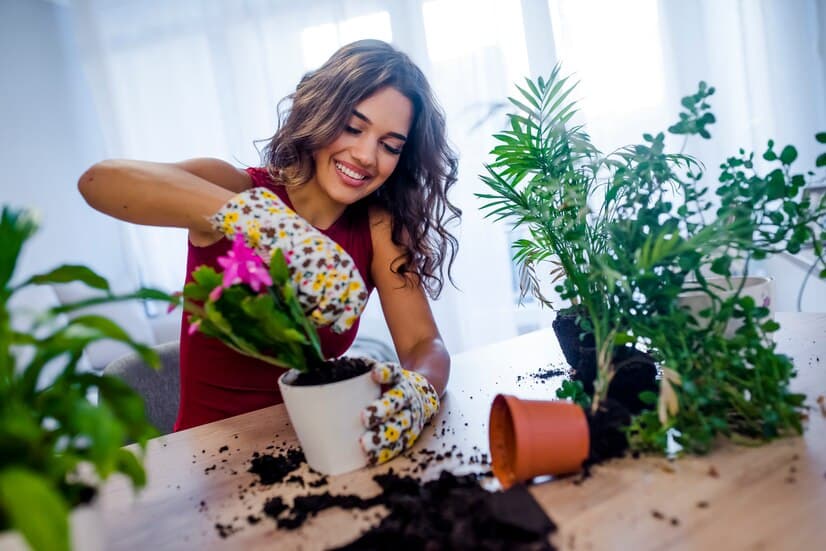Embarking on the journey of home gardening is not just about growing plants; it's about cultivating a deeper connection with nature right at your doorstep. Whether you have a sprawling backyard or a cozy balcony, gardening offers endless opportunities for learning, creativity, and joy. In this guide, we'll delve into essential home gardening advice tailored for beginners, equipping you with the knowledge and confidence to nurture your green oasis.
Understanding Your Space:
Before you start planting, take time to understand your gardening space. Assess factors such as sunlight exposure, soil quality, available space, and climate conditions. Determine which areas receive full sun, partial sun/shade, or are shaded throughout the day. This information will guide your plant selections and layout planning.
Choosing the Right Plants:
Selecting plants suitable for your space and climate is crucial for gardening success. As a beginner, opt for low-maintenance plants that are well-suited to your region's growing conditions. Consider factors like water requirements, sunlight preferences, and mature plant size when choosing plants. Herbs like basil, mint, and rosemary, along with easy-to-grow vegetables like tomatoes, lettuce, and peppers, are excellent choices for beginners.
Preparing Your Soil:
Healthy soil is the foundation of a thriving garden. Test your soil's pH level and nutrient content using a soil test kit, available at garden centers. Amend your soil as needed with organic matter such as compost, aged manure, or peat moss to improve soil structure, drainage, and fertility. Well-prepared soil sets the stage for healthy plant growth and reduces the risk of nutrient deficiencies.
Essential Gardening Tools:
Invest in basic gardening tools to make your gardening tasks easier and more efficient. Essential tools for beginners include a trowel, hand pruners, watering can or hose with a nozzle, gloves, and a garden rake. Quality tools will last longer and make gardening more enjoyable.
Watering Wisely:
Proper watering is key to plant health. Water your plants deeply and consistently, allowing the soil to dry slightly between watering sessions. Use mulch around plants to retain soil moisture, suppress weeds, and regulate soil temperature. Adjust watering frequency based on weather conditions, plant needs, and soil moisture levels.
Pest and Disease Management:
Monitor your plants regularly for signs of pests such as aphids, slugs, or fungal diseases like powdery mildew. Practice good garden hygiene by removing debris, fallen leaves, and weeds that can harbor pests and pathogens. Consider using natural pest control methods such as neem oil spray, beneficial insects like ladybugs, or companion planting with pest-repelling plants.
Harvesting and Enjoying:
As your plants grow and mature, enjoy the fruits of your labor by harvesting fresh herbs, vegetables, and flowers. Harvest leafy greens and herbs regularly to encourage continuous growth. Use harvested produce in your meals to savor the flavors of homegrown goodness. Don't forget to take time to relax and appreciate the beauty of your garden sanctuary.
Conclusion:
Embarking on your home gardening journey as a beginner is both exciting and rewarding. By understanding your gardening space, choosing suitable plants, preparing healthy soil, using essential tools, watering wisely, managing pests and diseases, and enjoying the harvest, you'll experience the joys of nurturing nature right at home. Remember, every garden is unique, and learning from both successes and challenges is part of the gardening adventure.
FAQs (Frequently Asked Questions):
Q1: How often should I water my plants as a beginner gardener?
A1: Watering frequency depends on factors such as plant type, weather conditions, and soil moisture levels. Generally, water deeply when the top inch of soil feels dry, rather than shallow daily watering.
Q2: What are some easy-to-grow plants for beginners?
A2: Beginner-friendly plants include herbs like basil, mint, and parsley, as well as vegetables like tomatoes, lettuce, peppers, and radishes.
Q3: How can I prevent pests and diseases in my garden?
A3: Maintain good garden hygiene, monitor plants regularly for signs of pests or diseases, use natural pest control methods like neem oil or beneficial insects, and avoid overcrowding plants to promote airflow.
Q4: Can I start a garden in a small space or balcony?
A4: Absolutely! You can create a thriving garden in containers, raised beds, or vertical gardening systems on balconies or small spaces. Choose compact and dwarf varieties of plants suited to your space and sunlight conditions.


No comments yet